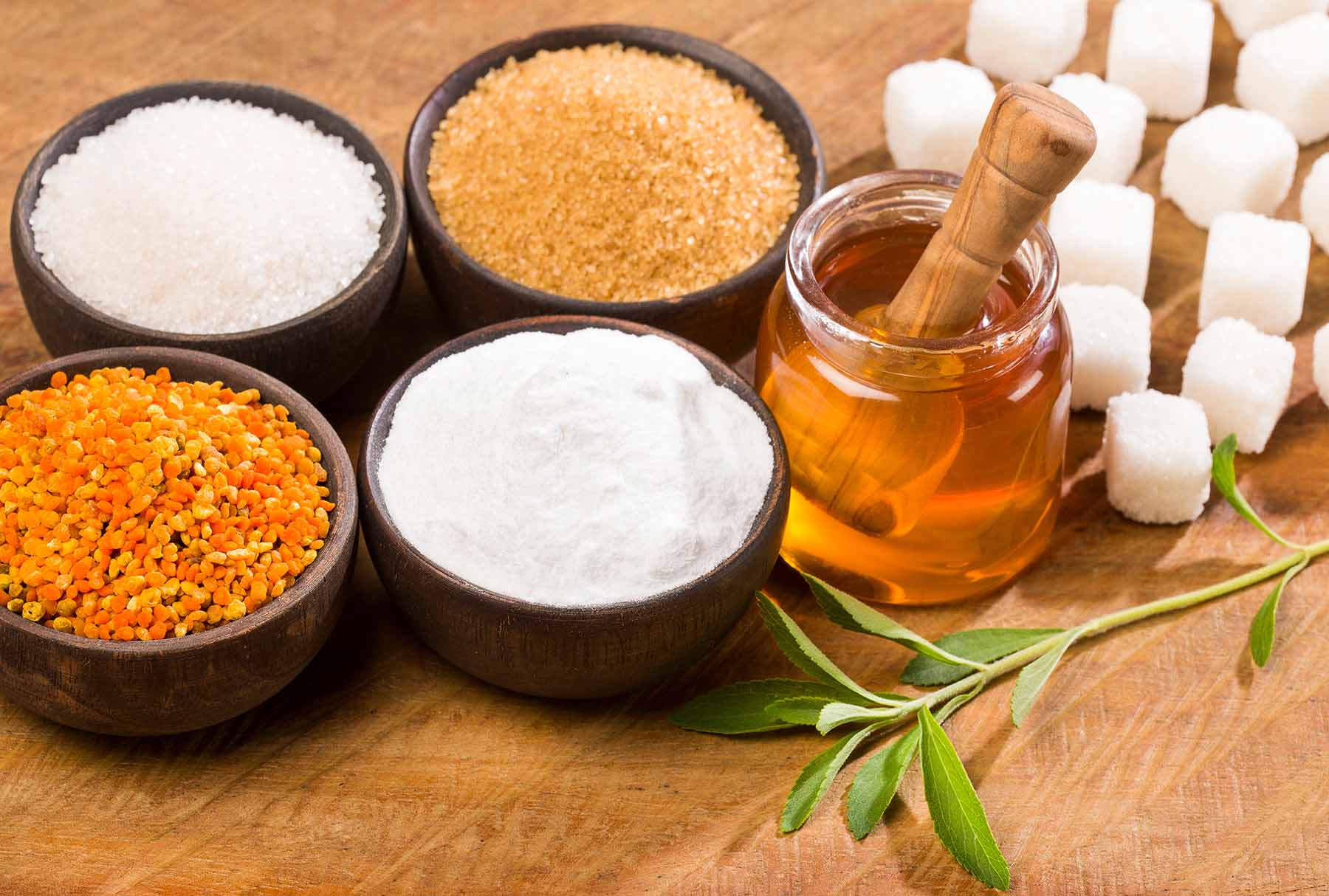Are Natural Alternative Sweeteners Better for You?

It’s the Holiday Season, and everywhere you turn someone is trying to get you to eat something sweet.
But what if you want – or need to – reduce your sugar intake to improve your overall health or lose weight? There are many sugar substitutes and sweeteners available on the market. And even more research studies on them, each seeming to contradict the other; it’s hard to know what is healthy and what is harmful.
Dr. Michelle Pearlman, a gastroenterologist and physician nutrition specialist with the University of Miami Health System, agrees that the body of research on sugar substitutes can be confusing, which is one reason she co-authored a review entitled Natural Alternative Sweeteners and Diabetes Management published this month. The article focuses specifically on studies using natural alternative sweeteners (NAS) and not artificial sweeteners.
“I wrote this review article to try to summarize a lot of the information out there on these types of sweeteners to make it easier for the consumer to learn about what is available on the market and their effects on blood sugar and other parameters like blood pressure and cholesterol, ”she says.
The review concludes that “overall, natural alternative sweeteners seem to have more beneficial effects on glucose metabolism, lipids and inflammatory pathways compared to artificial sweeteners and sugar-containing products, although studies thus far show conflicting results in human and animal models.”
Artificial sweeteners and natural alternative sweeteners – what’s the difference?
Originally, artificial sweeteners, like saccharin or aspartame, gained popularity because of sugar shortages during WW1. Now, the rise continues because of the obesity epidemic.
Wait, what?
The idea is that if people replaced sugar with something that does not provide substantial calories but has a similar taste, then people would lose weight and reduce the prevalence of diabetes. Studies so far, however, do not show that to be the case, says Dr. Pearlman.
“With over 6,000 products on the market that contain some sort of artificial sweetener, the prevalence of obesity has remained about the same over the past two decades. So, if these healthy foods were truly healthy, then the prevalence of obesity and diabetes should have decreased during this time,” she says.
Recently, natural alternative sweeteners, like stevia, have gained in popularity. Still, according to Dr. Pearlman, there is confusion around the various sugar substitutes.
“Often people interchange the two, but they’re completely different entities,” she says. Artificial sweeteners are completely artificially made, whereas natural alternative sweeteners are plant-based sugar substitutes.
Sugar substitutes may be better, but more data is needed
These are the four NAS that Dr. Pearlman references in her review:
- Stevia: Commonly known by the brand name Truvia, this sweetener is derived from the stevia plant. It is considered to be approximately 200 to 300 times sweeter than sugar. The FDA designated it as “generally recognized as safe” in 2008.
- Rare sugars: D-Allulose (D-Psicose), D-Tagatose, D-Sorbose, and D-Allose are all examples of rare sugars. They are similar to sugar in taste and texture and do not have the bitterness or intense sweetness of other substitutes.
- Sugar alcohols: Also called polyols, sugar alcohols became popular after World War II due to sugar rationing. Xylitol and sorbitol are common examples and are often used in sugarless gum, toothpaste and other products.
- Monk fruit: Chinese traditional medicine practitioners have historically used monk fruit as a remedy for respiratory, cardiovascular, and other conditions. In the United States, this sweetener has only recently become popular.
Some studies indicate that these natural alternative sweeteners may have positive effects on cholesterol and blood sugar levels, says Dr. Pearlman. But, there are limitations with the data, such as sample size. “A lot of these studies may be looking at 30 people; they’re not looking at thousands of people,” she says. “Also, researchers may test your blood sugar immediately after the ingestion and within the next 24 hours. They may even follow certain parameters over several months, but beyond that, the long-term effects have not been studied.”
Unfortunately, all sugar substitutes may have one main flaw – the human mind.
“Some people who drink an iced tea with stevia may use that as an excuse to consume an extra-large order of fries,” says Dr. Pearlman. “There is also an unconscious component because these sugar substitutes don’t impact satiety signals like glucose. You don’t get the normal release of hormones that makes you feel full.”
Also, Dr. Pearlman says that if replacement products taste even sweeter than sugar, we are training our brains to want food that tastes sweeter. Instead, we should be teaching our minds to enjoy less sugary foods.
“It’s really about getting back to the basics, getting rid of the excess sugar, and just eating real food,” she says. “Just because we can come up with an alternative doesn’t mean it’s a good alternative, and it doesn’t mean it’s actually going to make us healthier.”
“We should all be more mindful of what we’re eating, pay attention to the ingredients list, and really try to minimize the hidden added sugars,” she says. “If you want something to taste sweeter, than natural alternative sweeteners may be a better option. But, ultimately, we don’t have good long-term data in large populations to really make that a definite determination.”
Natasha Bright is a contributing writer for UMiami Health News. You may have read her writing on the Huffington Post and Scary Mommy websites.
Tags: artificial sweetener, Diabetes, Dr. Michelle Pearlman, natural alternative sweetener, sugar substitute
